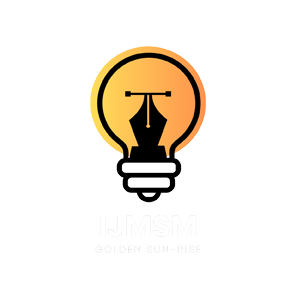Volume 2 Issue 1 | 2025 | View PDF
Paper Id:IJMSM-V2I1P103
doi: 10.71141/30485037/V2I1P103
Improving Learning Achievement in Natural Science through the Implementation of Discussion Method
Mustiali, Jasmansyah, Furtasih, Hujair Faizan, Akhmad Zaenal Abidin
Citation:
Mustiali, Jasmansyah, Furtasih, Hujair Faizan, Akhmad Zaenal Abidin, "Improving Learning Achievement in Natural Science through the Implementation of Discussion Method" International Journal of Multidisciplinary on Science and Management, Vol. 2, No. 1, pp. 29-33, 2025.
Abstract:
The research at MTs NW Lenek 1 East Lombok evaluated how students in seventh grade performed in their Natural Science (IPA) learning following a discussion method implementation during the academic year 2023/2024. The research studied the outcomes of Classroom Action Research methods when applied to Class VII-D students. The CAR process started by identifying the learning outcome problem in IPA followed by planning and selecting the discussion method as an intervention and its implementation for IPA teaching and performance assessment through systematic observation. Participants in the first cycle achieved an 68% success rate in the IPA course. The teachers' use of the discussion method during instructional delivery produced a remarkable outcome in Cycle II where student learning outcomes achieved 100% success. The study shows that student learning improved because of the discussion method's successful implementation which enhanced both understanding and retention of IPA concepts. The study implications demonstrate why participatory education strategies significantly influence teaching effectiveness. Students engaging in discussions as a learning method establishes an optimal environment for critical thinking and group work which produces superior learning achievements. Such pedagogical approaches help develop classrooms that promote interactive learning through student dialogue which leads to knowledge development. The research demonstrates that VII-D grade students achieve enhanced learning results from the discussion method for IPA. Further studies could explore further variations in implementation or assess its applicability across different subjects and educational contexts.
Keywords:
Learning Achievement, Teaching Method, Discussion Methods
References:
1. S. Ahmad, and Y. Prasetyo, “Improving Science Learning Outcomes through the Discussion Method: A Case Study in Indonesian Secondary Schools,” Journal of Educational Research and Practice, vol. 11, no. 2, pp. 123-136, 2021.
2. Suharsimi Arikunto, “Research Procedures: A Practical Approach, Jakarta: Rineka Cipta,” Research Procedures: A Practical Approach. Revised Edition VI. Jakarta: Rineka Cipta, 2008.
3. Stephen D. Brookfield, Stephen Preskill, Discussion as a Way of Teaching Tools and Techniques for Democratic Classrooms, Wiley, pp. 1- 336, 2005.
4. N. Budiarti, and E. Rahmawati, “The Effectiveness of the Discussion Method in Enhancing Student Engagement and Learning Outcomes in Natural Sciences,” International Journal of Educational Innovations, vol. 15, no. 1, pp. 45-58, 2022.
5. K. H. Dewantara, and Ki Hajar Dewantara's, “Thoughts, Concepts and Examples: Ki Hajar Dewantara's Education,” Yogyakarta: UGM Press, 2004.
6. M.F. Djalal, “Assessment in Foreign Language Teaching,” Malang: P3T IKIP Malang, 1986.
7. Sama et al., “Educational Psychology," Jakarta: Bumi Literacy, 1999.
8. Barbara Gross Davis, Tools for Teaching, Jossey-Bass Publishers, pp. 1-608, 1993.
9. O. Hamalik, “Teaching and Learning Process,” Jakarta: Earth of letters, 2001.
10. A. Harifa, “Learning,” Jakarta: BumiAksara, 2001.
11. R. Hartono, and S. Sugiyono, “Application of the Discussion Method in Junior High School Science Classes: An Empirical Study,” Indonesian Journal of Science Education, vol. 14, no. 3, pp. 200-215, 2023.
12. E. R. Hilgard, “Case Method Learning,” Bandung: Bonoma, 2006.
13. Cindy E. Hmelo-Silver, Ravit Golan Duncan, and Clark A. Chinn, “Scaffolding and Achievement in Problem-Based and Inquiry Learning: A Response to Kirschner, Sweller, and CitationClark (2006),” Educational Psychologist, vol. 42, no. 2, pp. 99-107, 2006.
14. Abdu Jihad, and l Haris, and A Jihad, “Learning Evaluation, 2006. 28, 2006. Learning evaluation,” A Jihad, A Haris. Yogyakarta: Multi Pressindo, 2012. 26, 2012.
15. S. Lestari, and R. Hidayat, “Enhancing Learning Outcomes in Science through Collaborative Learning Strategies: Focus on Discussion Methods,” Educational Sciences Review, vol. 12, no. 4, pp. 333-348, 2021.
16. A. Mudzalir, “Educational Psychology,” Jakarta: Pustaka Setia, 1997.
17. Nana Sudjana. (1998:28) wordpres.com/2011/07/03/definisi-belajar.
18. M. Noor Syam et al., “Education as an Adaptation Process,” Jakarta: Grasindo, 2003.
19. M. N. Purwanto, “Principles and Techniques of Teaching Evaluation,” Bandung: Youth Works, 1986.
20. D. Setiawan, and A. Widodo, “The Role of Discussion Methods in Improving Student Learning Outcomes in Science Subjects: A Study in Indonesian Context,” Asian Journal of Educational Research, vol. 13, no. 2, pp. 89-103, 2022.
21. N. Sudjana, Learning Methods and Techniques, 1998. Online: wordpres.com/2011/07/03/definitibelajar.
 IJMSM
IJMSM